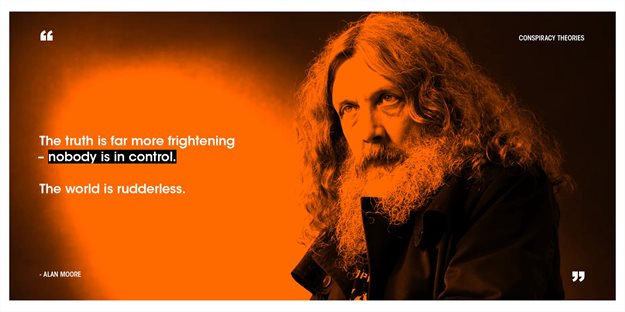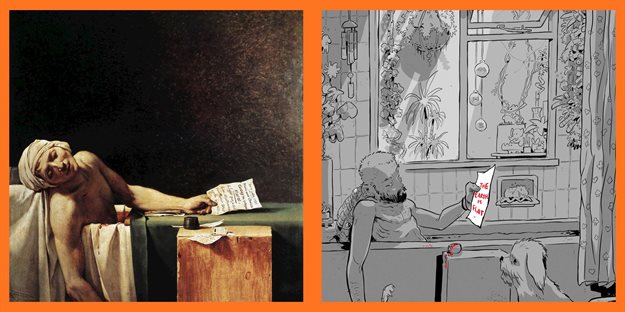
Top stories






More news













These are some of the statements that are being made by a variety of conspiracy theorist groups around the world. Believers have been growing in numbers and impact over the last number of years, and it’s so hard to look at them and not feel a sense of the ridiculous. How could conspiracy theorists possibly believe some of the things they do?

First off, what is a conspiracy theory and why do we call it that? A conspiracy theory is an explanation for an event or situation that invokes a conspiracy by sinister and powerful groups, often political in motivation, when other explanations are more probable. The term has a pejorative connotation, implying that the appeal to a conspiracy is based on prejudice or insufficient evidence.
Some conspiracy theories are harmless "fun" and others incredibly dangerous. Just as Africa has been announced as clear of Wild Polio, in Pakistan it’s making a comeback after anti-vaxxer movements there spread panic on TV and social media.
So why do people believe these stories, and who is indeed in the wrong?
Part of the problem with conspiracy theories is that they run from the possible to the utterly unrealistic and they all get shoved under the same banner of "conspiracy theory". Those that may have a really interesting question on the world are scared to talk about their concerns, they land up getting mocked and driven further underground into the darkness of conspiracy theory websites. This only encourages isolation and conspiratorial thinking.
The media, too, are often caught up in the confusion regarding conspiratorial thinking, so we spoke to deputy CEO of Code for Africa, Chris Roper, to ask him about communication and conspiracy theories.
Q: What is the media's responsibility regarding conspiracy theories?
A: Contrary to what some might think, debunking them is not top of the priority list. The primary responsibility is to not amplify them.
Q: What are our responsibilities as citizens?
A: This is different. Here, I think individuals’ who mock and debunk are important. It’s the false equivalence of ’seeing both sides’ that the media needs to avoid. For people, though, it’s different. The more fighters for truth the better.
Q: It seems like conspiracy theories are growing in number, and in uptake, why do you think that is?
A: Oh, I think we all know the answer to that one. The glorious internet. But another answer is that democracies are on the backfoot, with populist politicians and YouTube bros taking advantage of economic, cultural and scientific shifts to turn a profit in some way at the expense of other people.
Q: How do we get the “right” information when every media outlet either seems biased or irresponsible?
A: Excuse me? Where do you see every media outlet as biased or irresponsible? You’ve fallen for the propaganda. Having said that: it’s always been the job of the reader/user to keep journalism honest. It’s a symbiotic relationship. It’s also the essential engine for democracy to succeed.

So why are these things happening? Cult author Alan Moore might have just put his finger on the button in his statement on Conspiracies: ‘We are living in a state of confusion in the world. Uncertainty reigns’.
He wrote: “The main thing that I learned about conspiracy theory, is that conspiracy theorists believe in a conspiracy because that is more comforting. The truth of the world is that it is chaotic. The truth is that it is not The Illuminati, or The Jewish Banking Conspiracy, or the Gray Alien Theory. The truth is far more frightening - Nobody is in Control."
Someone who does think that “someone” is in control is Comic Book Illustrator El Chucho. I heard about his graphic novel, Tao’s Horizon, which talks about a flat earth and wanted to chat with him; not about the flat earth in particular but about being a person who is categorised as a conspiracy theorist.
Something that comes up strongly in my conversation with Chucho, as well as being a sneaky metaphor at the end of his graphic novel, is the relationship between his belief and becoming a social pariah. The final page in the comic is, at first glance, a beautifully drawn image. Upon (much) closer inspection, however, are the words "The Death of Marat". This is a reference to the painting of the fallen French Revolutionary, Jean Marat, which shows him dead in a bath with the letter from his murderer in his hands suggesting that he was killed because of his beliefs.
El Chucho said that this resounded so strongly with him because to believe in a flat earth is tantamount to your death. Believing is a taboo which consumes everything …

Conspiracy theories are not going anywhere, which makes the way we handle them critical. We must be critical of our sources, and our sources’ sources. Don’t share articles just because you believe the headline, don't encourage Uncle Basil when he shares weird things on Whatsapp groups. Seek out the truth, because, apparently, it will set us free.
For more help in checking the sources of information you receive, please consider utilising Chris Roper’s Code for Africa, or subscribe to Africa Checks WhatsApp line, which delivers fact-checking for the week’s latest stories.
